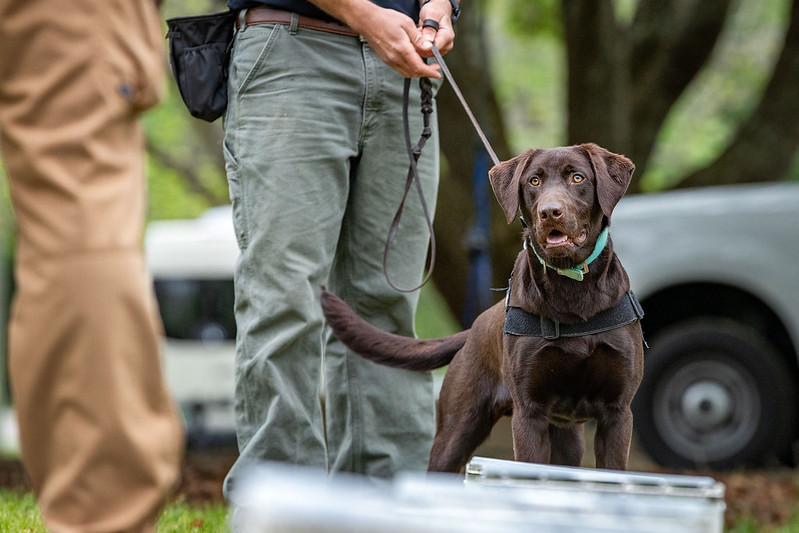Auburn College of Veterinary Medicine awarded $24 million Homeland Security contract to advance detection canine science; research contract largest in Auburn history
The Auburn University College of Veterinary Medicine has been awarded a five-year, $24 million contract by the U.S. Department of Homeland Security (DHS) Science and Technology Directorate (S&T) to advance detection canine sciences and enhance operational threat detection capabilities.
The award is the single largest research contract awarded to Auburn University.
“Auburn has long been recognized for its world-class detection canine sciences research, and this funding from the Department of Homeland Security will allow significant enhancement and expansion of this critically important work,” said James Weyhenmeyer, Auburn vice president for research and economic development.
The contract will support initiatives in Auburn’s recently established, transdisciplinary Detection Canine Sciences, Innovation, Technology and Education (DCSITE) program, which will serve as the primary academic resource to the DHS S&T for expertise in all areas of detection canine sciences.
“Our DCSITE program will promote continual improvement and best practices for domestic production of detection canines to respond to evolving Homeland Security priorities,” said Frank “Skip” Bartol, College of Veterinary Medicine associate dean for research and graduate studies and DCSITE program project investigator.
“It will foster technological innovation, sharpen responsiveness to emerging threats, create formal educational programs and provide a centralized hub for expertise and knowledge in the field of canine detection.”
Canines are proven to be an important counterterrorism tool to prevent and respond to national security threats. Detector dogs are widely deployed for real-time, advanced threat detection to help deter acts of terrorism against infrastructure, military, political and civilian targets.
“No other detection option currently available can locate and track-to-source small-quantity odors in real time, providing law enforcement with critical threat intelligence and enabling immediate deployment of countermeasures to reduce the risk of successful attacks,” Bartol said.
Responding to calls for a large-scale, cooperative government and academic effort to advance detection canine sciences, Auburn University created DCSITE to define and deploy science-based and science-driven standards of practice, according to College of Veterinary Medicine Dean Calvin Johnson.
“DCSITE will leverage the almost 30 years of research expertise of the Canine Performance Sciences program, which is an internationally recognized leader in detection canine research, breeding, development and technological innovation,” Johnson said.
Ultimately, the program will integrate the best scientific practices in analytical chemistry, genetics, genomics, reproduction, veterinary and sports medicine, olfactory neuroscience, behavior and cognition, metrology and engineering to advance detection canine sciences.
Anchored in Auburn’s College of Veterinary Medicine, the endeavor represents a collaborative effort involving subject-matter experts from multiple colleges and allied supporting educational and technical units. Capabilities will be further leveraged through targeted external partnerships involving experts at other academic institutions, national laboratories and private research and development enterprises.
DCSITE also will promote interdepartmental, interagency and multi-institutional collaboration to drive development of scientifically validated procedures, training and canine mobile sensing technologies with broad applications to the Homeland Security mission.
More information about the DCSITE program is available at www.dcsite.org.
BY MIKE JERNIGAN

The Auburn University College of Veterinary Medicine has been awarded a five-year, $24 million contract by the U.S. Department of Homeland Security Science and Technology Directorate to advance detection canine sciences and enhance operational threat detection capabilities.
Categories: Security
Back to Articles




